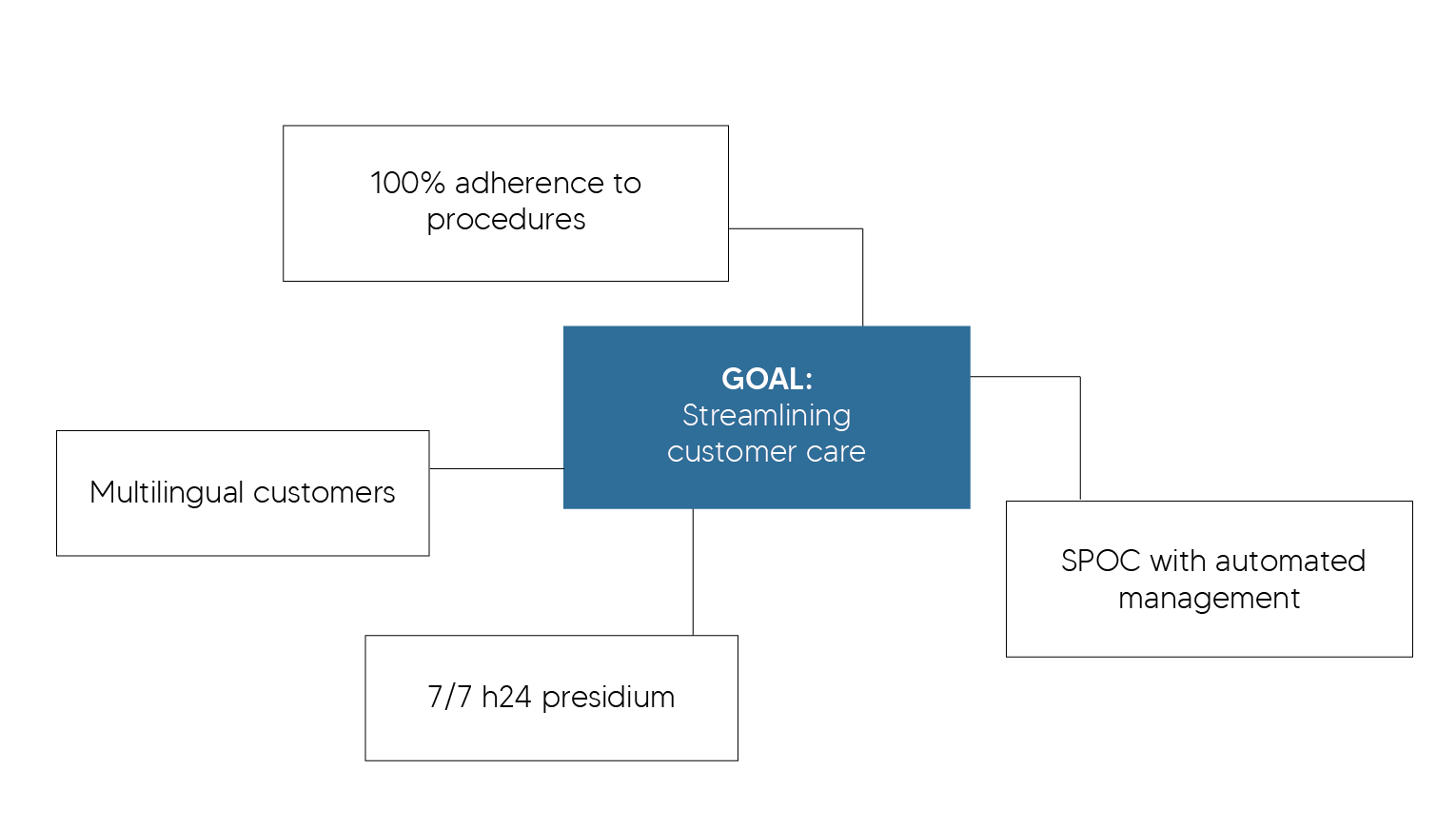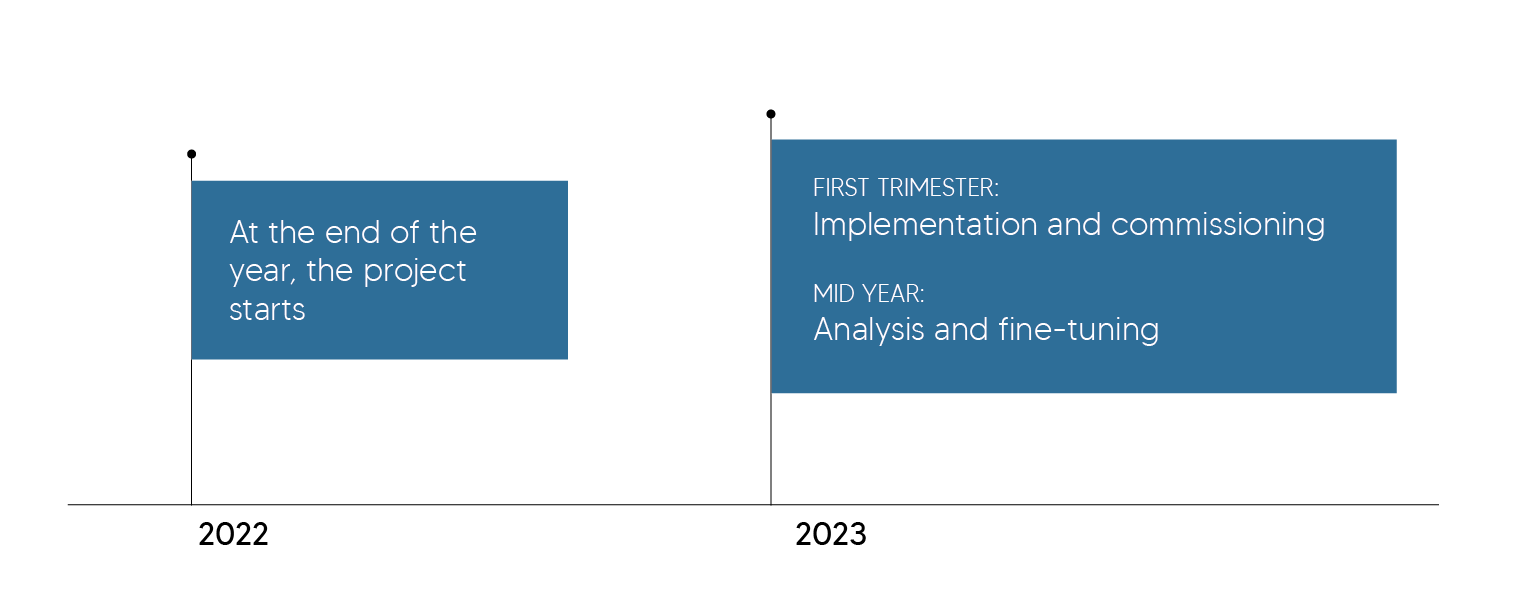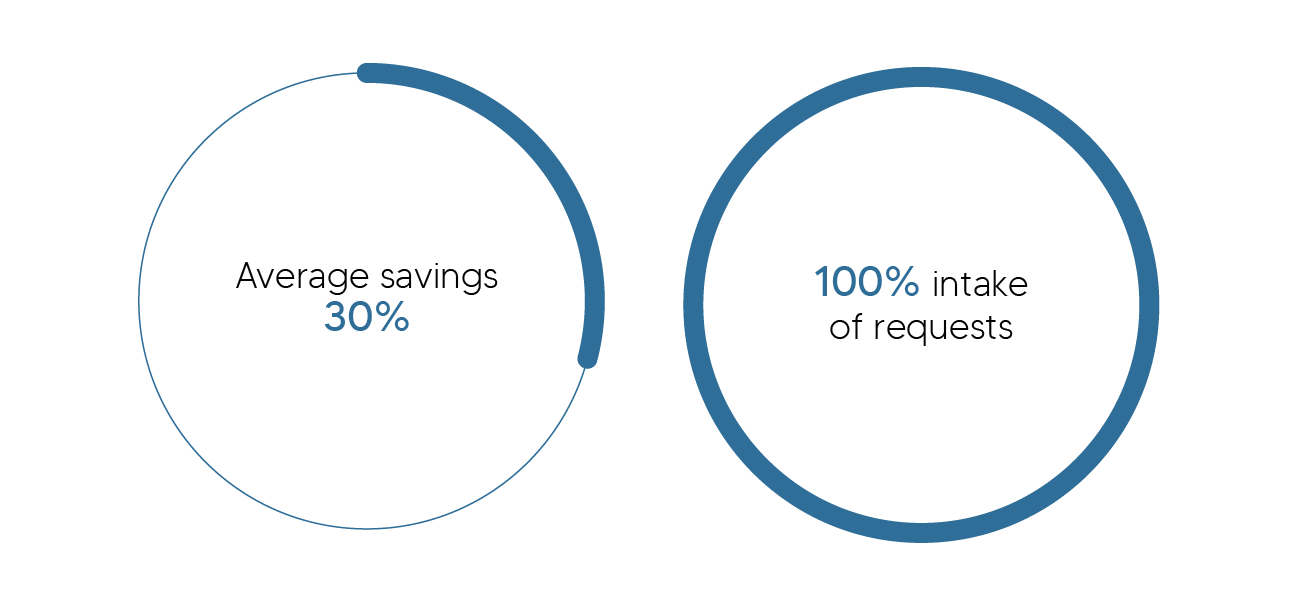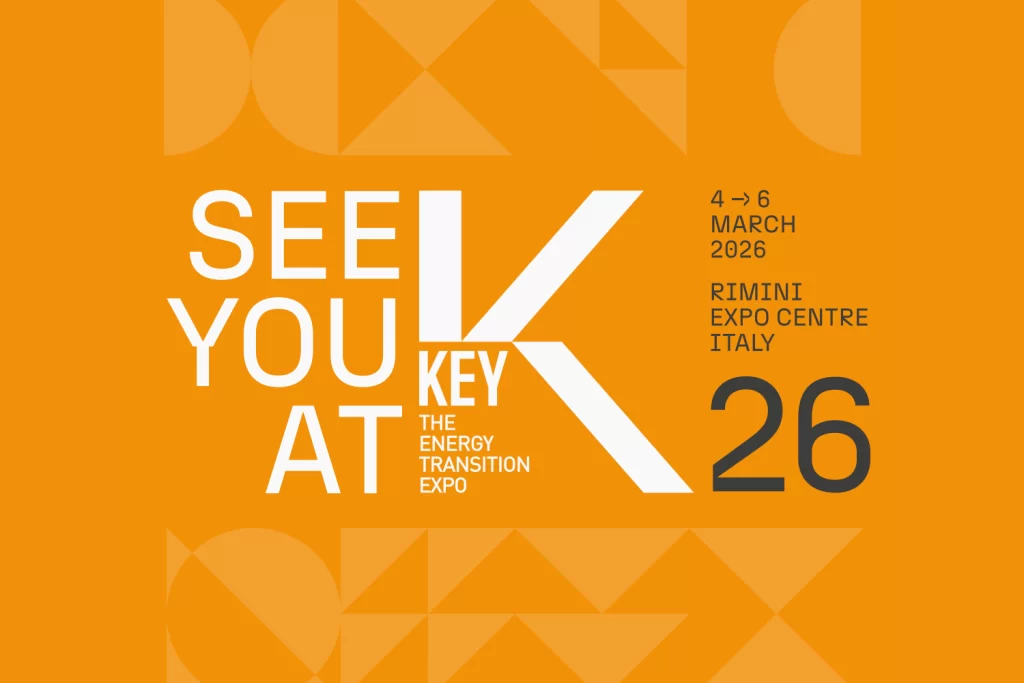SUMMARY
In a global environment characterized by service requests in multiple languages and varying volumes, efficient customer care management is a significant challenge for international companies. This case study illustrates how INGO addressed and solved the challenges of a customer who needed to streamline its support processes by implementing a centralized SPOC (Single Point of Contact) and leveraging advanced IVRs to automate escalation, with continuous and multilingual coverage.
Who is the client company
The customer is a key player in the industrial, service, and facility management sectors. A technology leader in electrification and automation, it is committed to shaping a more sustainable and efficient future in resource management. By combining engineering expertise and software solutions, the company optimizes production, handling, power and resource utilization. With a tradition of excellence spanning more than 140 years, its more than 110,000 employees are committed to driving innovations that accelerate industrial transformation.
What were the client’s needs
The client turned to INGO, its long-standing supplier, because it wanted to optimize its customer care with a project that was designed specifically for its business needs.
For what reason did the company contact INGO
The company’s overall goal was to completely rationalize the various fragmented service channels, entrusting them to a single point of contact responsible for handling all requests, leveraging customizable IVRs and automation.
What were the needs of the company?
At the time the client asked INGO to set up a project, the issues to be solved were very clear: on the one hand, the volumes of service requests fluctuated greatly, creating moments of overload followed by periods of relative calm that made it difficult to right-size resources; on the other hand, it was constrained by rigid procedures that had to be followed 100 percent to ensure high quality standards and regulatory compliance. It also had the need to handle calls in multiple languages.
What services did he need and what were the goals set?
By doing an analysis together with the client, four basic needs were identified that were driving the request:
- first, we needed a SPOC (Single Point of Contact) with automated management, capable of sorting incoming requests according to predefined rules and tracking every interaction.
- second, this system had to be in operation continuously, with a 24-hour garrison for all 365 days of the year, without exception.
- standardized procedures had to be followed 100 percent to comply with current regulations.
- finally, it had to be able to handle customers in different languages, providing a smooth and professional experience regardless of the user’s geographic origin.

What INGO has achieved
The project approach was systematic and divided into well-defined phases:
It began by establishing clear rules of engagement, with a focus on escalation protocols for contact persons on call in case of emergencies or critical situations. This made it possible to create a quick and efficient response system for even the most complex issues.
Next, contact channels were precisely defined, ensuring that each entry point was integrated into the centralized system and that no request could “get lost” between touchpoints.
The next step was the creation of the process and verification of the necessary tools. INGO meticulously analyzed each step of the customer journey, identifying the most appropriate technological tools to support each stage and implementing advanced IVRs.
Prior to full implementation, extensive testing of the systems was conducted, simulating different scenarios and volumes of requests to ensure that the solution was robust and scalable.
Finally, a detailed reporting system was developed that would enable the client to constantly monitor performance and make evidence-based decisions.

Achievements
The move to a centralized system managed by INGO brought tangible and immediate results.
- The most significant figure was the average economic saving of 30% due to optimization and control of service costs.
- Another key benefit was the ability to clearly prioritize interventions, ensuring that resources were always optimally allocated and that the most urgent requests received the immediate attention they needed.
- Perhaps the most important result, from a quality perspective, was the achievement of 100 percent intervention intake or appropriate escalation. This means that no request went unanswered, even at peak times, ensuring a consistent and reliable customer experience.
With well-defined uniform escalation rules, INGO has created an integrated system that links all touchpoints into a single customer care platform. Flows are constantly tested and monitored, and the customer is given detailed reports that provide a complete and transparent view of the service. It is thanks to this profound optimization that the group can now guaranteefast service that fully complies with the highest quality standards in the industry.

Conclusions
The project implemented by INGO demonstrates how a structured approach to customer care management can turn a critical business issue into a competitive advantage. Through the centralization and automation of processes with advanced IVRs, the client company achieved not only significant economic savings, but also a qualitative improvement in the service offered to its international customers.
The results achieved – a 30 percent savings and 100 percent intake of requests – testify to the effectiveness of INGO’s approach and the added value it can bring to companies operating in complex international environments.
Contact us
Find out more about our CX services
INGO, thanks to multichannel and technological innovations, is able to build specific projects for each company, following the process from the initial analysis phase to the implementation of integrated, scalable and modular omnichannel strategies. For over 20 years, Made in Italy at the service of the customer experience.
blog



